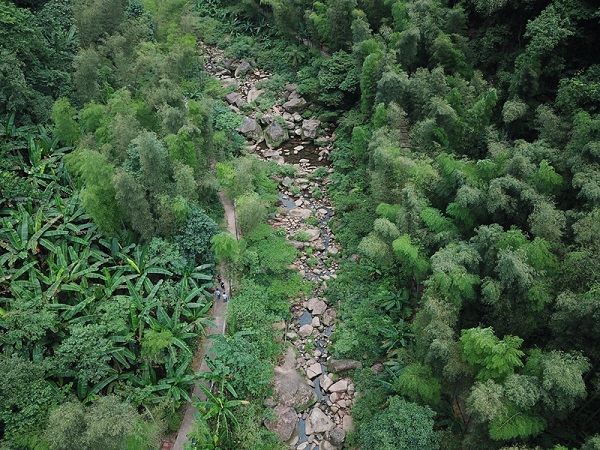
GUIYANG - Yang Liemeng, 50, misses his childhood, when he could swim in the nearby Wuma River.
"When the sun went down, you could see fish leaping out of the water," Yang said.
In recent years, however, the Wuma, which runs through the city of Renhuai in Guizhou province, has been covered with a white foam brought by pollutants. Because of overfishing, "fish leaping" is a rare sight for the younger generation.
The water pollution has raised concerns of the local government. In 2009, authorities shut down the local paper mills, which had been contaminating the river. To improve water quality, pollution sources have to be dealt with first, said Feng Jinwei, a local official.
Apart from the government, local people also want to make efforts. Yang said that when he and some of his friends were walking along the river one day last year, they concluded that something should be done to bring back their childhood memories.
 |
|
A nature reserve stands alongside the Chishui River, one of the Yangtze's tributaries, in Guizhou province. [Xinhua] |
In May 2017, they founded a volunteer group to stop illegal fishing and report pollution sources to the authorities. Yang and his friends devoted dozens of hours per week to patrol the riverbank, stopping people from illegal fishing and waste dumping.
But the work wasn't easy. In the second month of patrolling, Yang was involved in a physical conflict when trying to stop people catching fish. His car was vandalized, and his injuries kept him hospitalized for 16 days.
"When the man who hit me came to visit, I tried to persuade him to join us," Yang said. "But he declined." He did tell Yang, however, that he would no longer fish in the river.
"Even after getting injured, I never regretted doing this," Yang said.
Yang's story spread throughout his town, and his volunteer organization became locally famous. More than 400 people have since joined the organization, said Guo Xiaoyong, vice-head of the group, most of which consists of farmers and merchants.
"As the patrolling team becomes known by more people, it becomes easier for members to prevent pollution and illegal fishing," Guo said. "Since its founding, more than 1,000 people have been stopped by volunteers for damaging the river."
"It gives me a sense of satisfaction," Yang said. "I'll keep doing this until the day I'm too old."